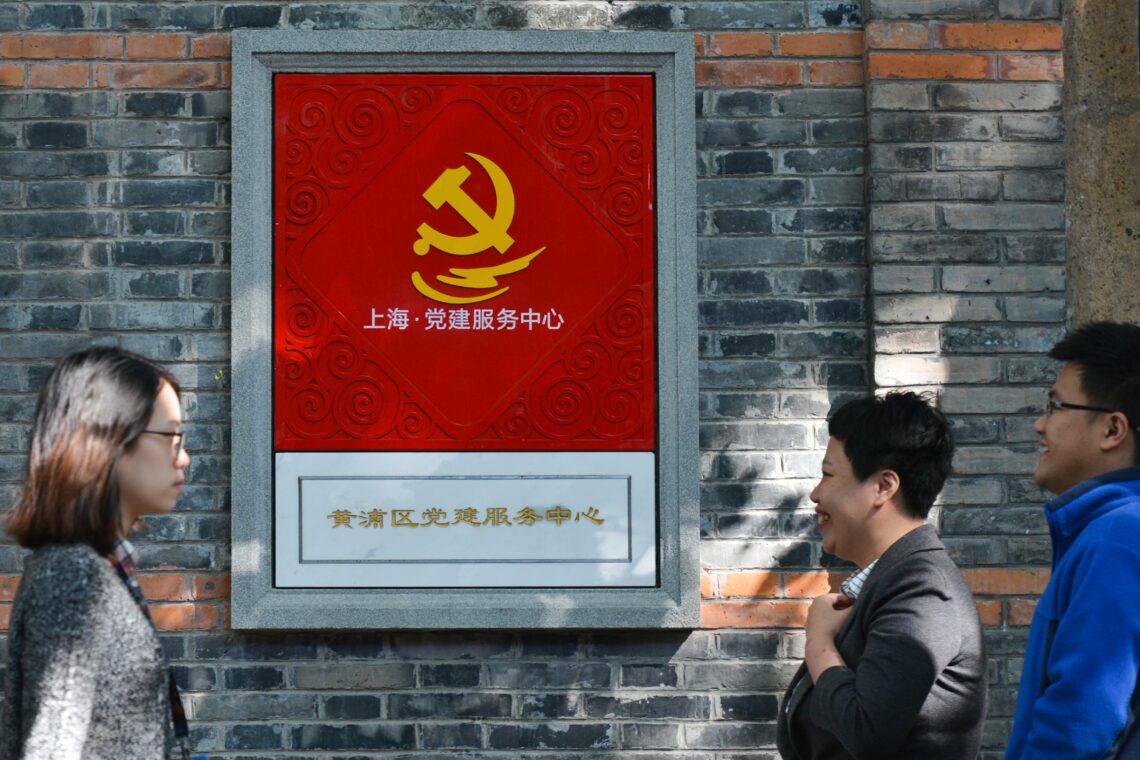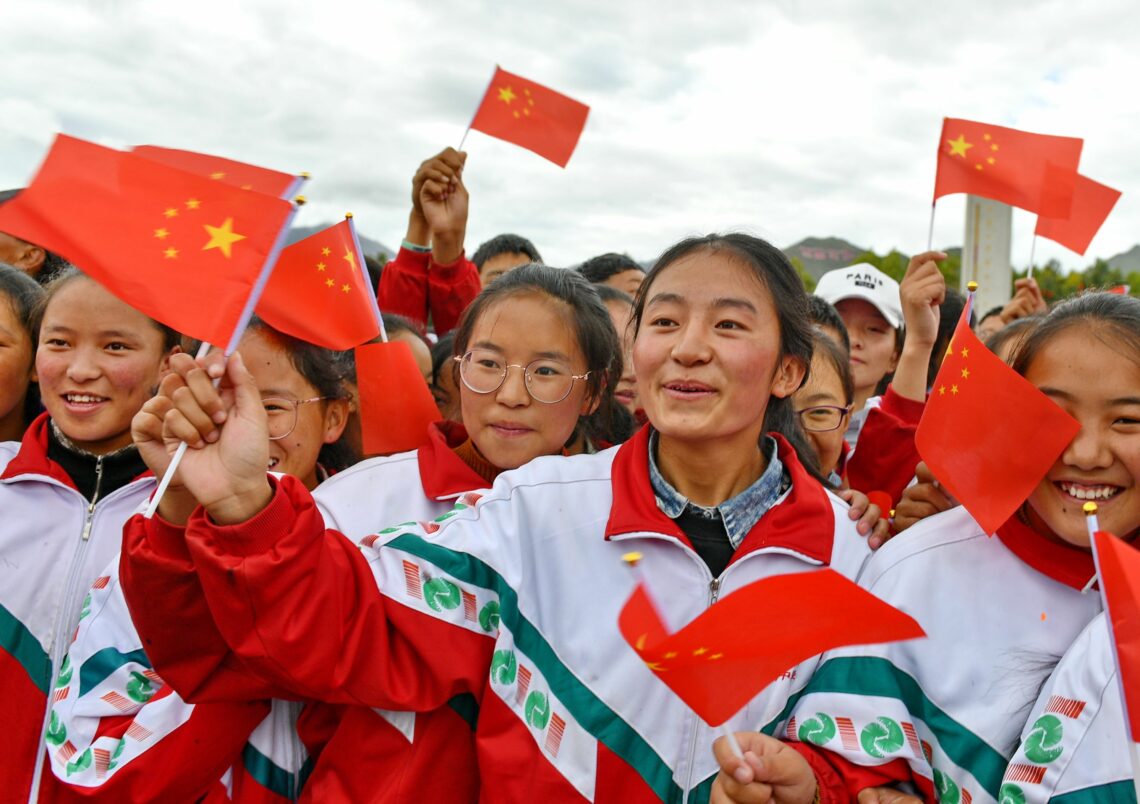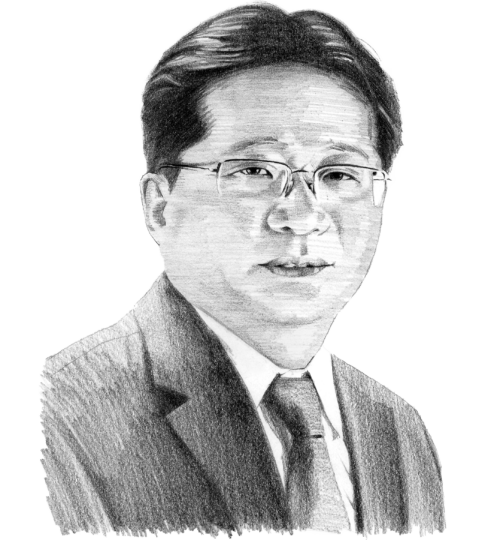Where is China going under President Xi Jinping?
Over the last decades, China became a global player from both an economic and geopolitical view. While many citizens are convinced of the legitimacy of the system, younger generations expect the government to earn their support with efficient and transparent governance.

In a nutshell
- The Communist party will keep its key leadership role
- Citizens will expect corruption to be tackled successfully
- China will remain a technological leader despite economic challenges
This new series of GIS reports examines how effectively countries are ruled and the consequences of governing systems for economies, societies and nations’ development prospects.
At the moment, politics in China are driven by several sociohistorical perceptions. Those most likely to influence the situation in the years ahead can be broken down into five separate beliefs held by the Chinese about their past and current national situation.
Last one standing
While the collapse of the Soviet Union rid China of its most dangerous next-door rival, it also sent shock waves through Chinese politics. A great nuclear power with a military presence far beyond its borders, a massive population provided with basic social services and an economic might rivaled by few other nations crumbled within a few years.
It was widely concluded – not only in China – that the inefficient Soviet economy and its corrupt political system could not withstand the introduction of political pluralism. This, in conjunction with the rise of nationalism on the outskirts of the multiethnic empire, and the rising cost of military adventurism, like in Afghanistan, was thought to be the main reason for the fall of the Soviet Union.
It is easy to see why China was eager to ascribe the end of the U.S.S.R. to factors that were specifically Soviet. Despite animosity between the two countries since the 1960s, systemic similarities were obvious. The one-party rule and Marxist ideology in Beijing were both Soviet imports.
It is easy to see why China was eager to ascribe the end of the U.S.S.R. to specifically Soviet factors.
The U.S.S.R.’s demise and its catastrophic impact on the livelihood of its people took place during a period of spectacular growth in China. These contrasting outcomes reassured the Chinese, and led many around the world to believe that China was getting things right while the Soviet Union had not.
Facts & figures
Governance in China
China is a unitary, one-party socialist republic. Under the Chinese system, every institution reports to the Communist Party of China (CPC), which is at the very core of the country’s leadership.
Politburo
The executive leadership of the CPC consists of 25 appointed party members. Within this organ, the decision-making power lies with the seven-member Standing Committee of the Politburo. The current General Secretary is President Xi Jinping.
National People’s Congress
A unicameral legislature with nearly 3,000 members, China’s National People’s Congress elects major state officials and oversees the government and courts. Members have five-year terms, and the congress meets on a yearly basis. Although the organ is usually dismissed as symbolic by Western media, in recent years it has revised and even rejected proposed legislation. The backbone of the NPC is the 175-member Standing Committee of the National People’s Congress, which has the power to interpret the country’s laws, including its constitution.
State Council
Also called the Central People’s Government, the State Council of China is the top administrative body of the People’s Republic. Led by Prime Minister Li Keqiang, the organ oversees the functioning of ministries and other administrative organs.
Supreme People’s Court
The highest trial court of Mainland China supervises local and special courts at various levels. Its 340 judges are selected by the president and approved by the National People’s Congress. Hong Kong and Macau have separate judicial systems based on British common law and Portuguese civil law respectively.
Source: BBC, CIA
New might
The second perception currently shaping Chinese politics is the newfound realization, both at home and abroad, of the country’s enormous economic, political and military might. Now that China is an economic giant shaping global trends, Beijing is seeking to convert its economic clout into soft power by constructing its own mechanisms of cooperation and influence.
As evidenced by recent exchanges at the United Nations Human Rights Council, China has political leverage even with the most sensitive of issues. Its slow-paced outreach, for example, its purported “String of Pearls” policy of acquiring access to key maritime ports, shows its growing geopolitical might. By any definition, China is approaching “great power” status.
Assertive youth
The generation that grew up after the beginning of the economic reforms has only known a powerful China that is admired for its rapid growth. It is only natural for them that their country asserts its might, especially on matters it considers vital. Thus, there is pressure from wide swaths of the population to behave more like a great power and finally leave behind the “hide your strength, bide your time and never take the lead” doctrine famously preached by former leader Deng Xiaoping (1978-1992).
Observers are sometimes puzzled by public outbursts in response to perceived injury to national Chinese pride.
Foreign observers are sometimes puzzled by public outbursts in response to perceived injury to national Chinese pride, and have a tendency to ascribe it to propaganda. However, it is worth noting that such manifestations mostly reflect the post-reform generation’s deep belief that China deserves its rightful treatment as a great nation on par with other global players.
Juxtaposed pasts
A fourth crucial belief is the historical memory of foreign domination and the total impotence of the Chinese state for the century that preceded the Communist Revolution. This past is juxtaposed with China’s unification and prosperity under the Communist Party of China (CPC). The legitimacy of the CPC rests on this core notion. Of course, the propaganda machine is also doing its job, but for the mainland Chinese, any change in the status quo could mean losing both personal and national achievements. This sentiment is especially vivid in the generations who still remember the hardships of both pre-communist but also pre-reform China.
Online accountability
Finally, netizens exist in China too. The CPC and the current system will increasingly depend on its ability to project an image of honest, merit-based and efficient leadership fostering an equitable society. Netizens are generally repulsed by falsehood and drawn to authenticity. Hence the battle for legitimacy will be an ongoing struggle. For younger generations, this image will need to be earned constantly. Censorship will be important in safeguarding perceptions, but it can only do so much. The underlying reality will need to live up to expectations.
It needs to be pointed out that these features are not the typical, structural, and institutional factors that define politics but beliefs that lie deep in the Chinese psyche – and they are likely to play a role in the future of China.
Status quo
Under the circumstances, any significant initiative for political change is highly improbable. The CPC’s role as the only center of power will continue to be a priority for Chinese political leaders and President Xi Jinping is likely to be at its helm for a significant period of time.
The party-state is the backbone of the current system and ensuring its efficiency is central to the priorities of Chinese leadership. Within the ideological boundaries set by the party, Chinese rulers will continue to focus on a merit- and seniority-based party-state bureaucracy. The central features of the latter, such as rigorous entrance exams, collegial decision-making, two-term time limits, retirement age limits, minimum service requirements, bounded entrepreneurship within the five-year plans, and so forth, are likely to remain in place in the years ahead.
This system is widely perceived as beneficial for China and its people. In the last four decades, the country has risen from poverty and backwardness to become one of the leading global powers. Hundreds of millions of citizens have been lifted from poverty. Chinese companies now form an industrial powerhouse and compete with powers at the cutting edge of the digital revolution.

Efficient management is even more important as China enters a new stage of development with more restricted access to export markets and foreign-made technology, in part because of the U.S.-China trade conflict. Beijing also faces lower growth, an outflow of foreign investments from labor-intensive sectors, and other economic challenges. Whether it will manage them successfully is a separate and undeniably consequential topic. However, China’s place among technology leaders is secured and will remain even in the current environment, much like Japan maintained its status after its phenomenal growth up to the 1980s. In many areas – quantum internet, 5G network, smart grid, stem cell – China is able to compete with the best, if not already outperform them.
In this context, significant attention is paid to the large state-owned enterprises (SOEs) that constitute the basis of China’s economy. Their efficiency and ability to operate without government subsidies is often doubted. It could be surmised, though, that they are increasingly starting to resemble large conglomerates in Japan and South Korea. They are unlikely to grow exponentially in the manner of Silicon Valley start-ups, but they will go forward slowly. They will avoid mistakes that might threaten their survival but also fall short of drastic breakthroughs.
The state will undoubtedly retain its current role in the economy, and these SOEs are its main tool in doing so. Privatizing them would mean giving up political power. SOEs were also some of the most powerful drivers of China’s development surge. As such, these companies are not only economic entities for profit or political machines for maintaining power but developmental vehicles that created entire industries from scratch, and enabled China to catch up with leading economic powers.
There will be a greater push for the Sinicization of every aspect of social life among ethnic minorities.
The party-state currently manages SOEs with subsidies, preferential policies, planning, and interference in human resource policies. Because of international pressure, the relations between state and SOEs will need to be adjusted, and Japan and South Korea’s model of cooperation between large conglomerates and the state will certainly come in handy. Nevertheless, companies will still be subordinate to the party-state as long as certain key aspects of the management system remain.
Scenarios
It is likely that rooting out corruption will not only be an ongoing political policy, but also a long-term strategy. Singapore has shown that a clean and efficient government able to meet the needs of its people can have a long and stable rule even if one party dominates for many decades. Thus, fighting graft will continue to be a central theme crucial to the longevity of the current system.
Relative prosperity often gives rise to national consciousness. This is true of China’s majority but also among ethnic minorities. Any hints of separatism or nationalism will lead to immediate and harsh reaction on behalf of the state. Meanwhile, there will be a greater push for the Sinicization of culture, religion and all other aspects of social life among ethnic minorities.
China’s more assertive position could lead to greater friction in relations with some immediate neighbors in the region. Military action is highly unlikely, however, and rivalry is more likely to take the form of jostling for position in view to a longer-term outcome, although a sudden crisis in relations with countries like Vietnam cannot be ruled out.
China is entering new territory, though the experiences of other industrialized East Asian nations make it possible to draw an outline of the future in terms of economic responses. The party-state political model will still define China and geopolitical rivalry will increase. Politics, rather than economics, could bring unexpected challenges in China’s future.








